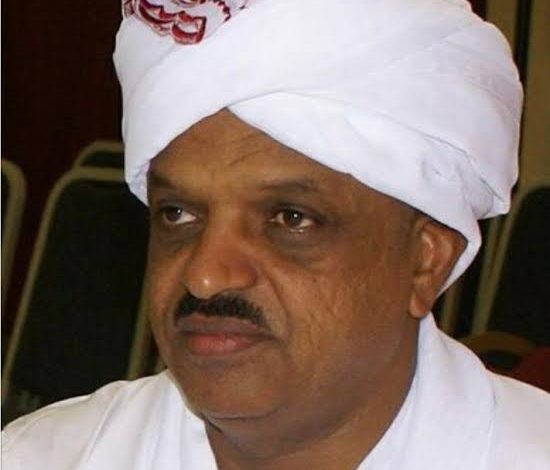The Government they Deserve (1-2): A Must to Reaching Rome, Even if the Travel is Long

By: Ambassador / Karrar El-Tohami
“The Government They Deserve” is a title of a book written in English by the late thinking ker Mansour Khaled.
It deals with the role of the Sudanese elites in political development, and the phrase is not the product of Mansour’s ideas, as it has been circulating in political literature for many decades. Winston Churchill said it seventy years ago: “Every people in the world get the government they deserve.” He was preceded by Thomas Jefferson, the American president, who said, “Every nation gets the government it deserves.” And more than two hundred years before them, it was said by the liberal philosopher and French monarchy theorist, after the confusion and turmoil of the French Revolution, Joseph de Maistre.
“A country gets the leaders it deserves”
It is closer in meaning to the honorable Hadith that is disputed over it: “You are like the one who rules you,” or in another narration, “They type you are, you are ruled”.
◾ Has it been a long time since the people of Sudan found the government they deserve, or is the issue of “de facto” and requires management, insight, good thinking, national acumen, and enlightenment? Are the bad governments since independence, which have completely fallen upon the heart of the nation, stifled its breath, and killed its ambitions, a fateful reality from which there is no escape deserved by the good people who, after independence, descended from the sky of great ambitions to the land of conflicts, failure, and small dreams?. Or is there an irony in this phenomenon, that the people are wonderful and deserve more than a wonderful government, but the reality is more dusty??!
◾The Sudanese people, from a biological and ethnic standpoint, represent an ideal formation and are not weak and vague in their mental structure. They combine Arab, African, and Nubian racial mixtures, and the cross breed in genetics is more superior than racial purity and the unity of the genetic chain in terms of mental abilities and emotional intelligence and the highest degree of perception than others due to this hybridity that manifests itself in many dual characteristics between anger, forbearance, rejection, acceptance, arrogance, humility, narrow ignorance, and broad knowledge, taking into account the influence of environmental factors on (inducing) or (retaining) these qualities.
◾The Sudanese people benefited from cohabitation with English colonialism after the Sudanese revolution in the eighteenth century, which ended the rule of the Turks and was defeated by colonialism, and assimilated into the British experience, producing the high level of education, developing civil administration, modern professional frameworks, and distinguished administrative practices, and producing a generation of modernists and highly educated people.
◾ In this way, the Sudanese people were a forerunner of the Arab peoples and the African peoples surrounding them in the areas of civilization, development, and knowledge absorption. They were the owner of the most prestigious universities in the region, the first to employ women in the judiciary and the police, the owner of the largest agricultural renaissance, the largest agricultural project in Africa, the first in building dams, and the most contributing people to the renaissance of other developing countries in Africa, the Gulf region and others, and on the cultural levels, it was one of the founders of African theatre, arts and sports, whose structures and ideas began in the 1950s in the capital, Khartoum.
◾In our current time, the modern Sudanese cadres who graduated from quantitative and qualitative universities spread throughout the country have proven their high efficiency in facing contemporary challenges such as the challenge of global academic capabilities and the challenges of technology, military industrialization, infrastructure and bridges, despite the stifling international blockade that has lasted for nearly thirty years, the pursuit of financiers and intimidation of cooperating countries.
◾ These words are not out of populism, which many peoples brag about and brag about themselves to the point of misleading arrogance, but these are facts based on the facts of written and necessarily known history, on objective reading and self-knowledge, and on the hope of reaching Rome, even if the journey is long.
◾ So what is the secret of this contradiction in Sudan between the bad and flawed governments and the splendor and innovation of the peoples, and when or how do the excellent people choose the excellent government that resembles them, and what are the hidden elements that have stood as a stumbling block throughout the ages without preserving the frequency and continuity of development?!
Is the war trauma sufficient to restore balance between the two sides of the equation so that the excellent people get the government they deserve, and what is the form of this government??!
To be continued



